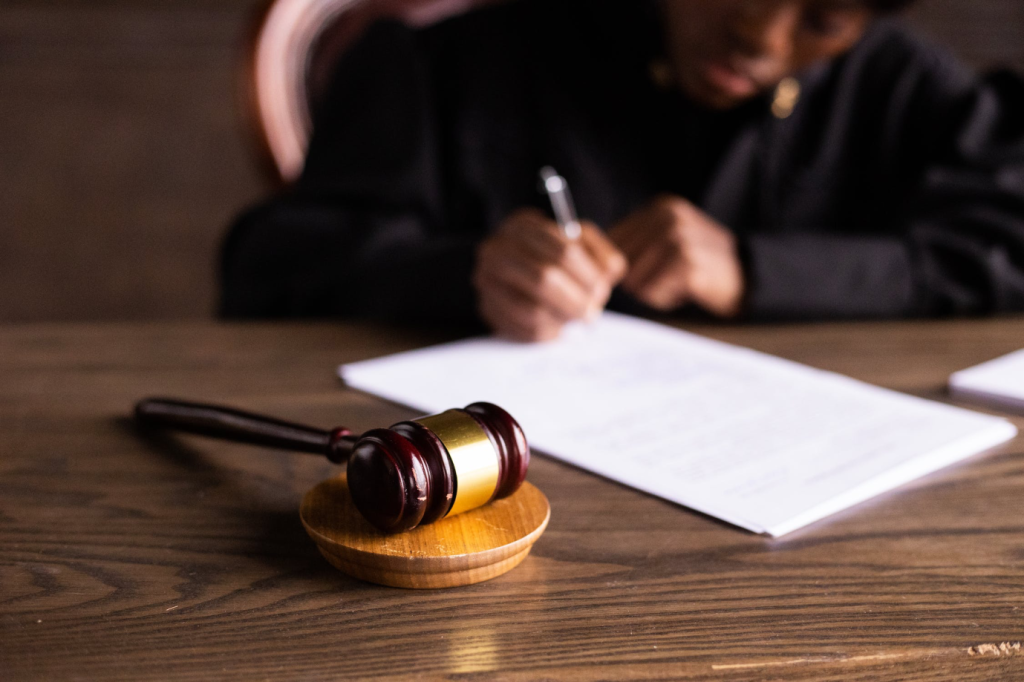The gavel of justice echoes through courtrooms worldwide each second. It signifies a decision made, a case closed. Among these cases, default judgment hearings play out frequently. This avenue is pursued when a party fails to respond to a lawsuit.
In such hearings, the importance of evidence is magnified. Let’s explore the role of evidence in default judgment hearings and its profound impact on legal outcomes. We’ll also help you understand how Daniel Ogbeide Law can serve as your helping hand through this process.
Understanding Default Judgments
The court may enter a default judgment when a defendant fails to respond to a lawsuit within the stipulated time. This effectively means that the plaintiff wins the case by default.
However, this isn’t an automatic process; the plaintiff must provide sufficient evidence to support their claim (even in the defendant’s absence). The court must be convinced that the plaintiff would have prevailed had the case gone to trial.
The Role of Evidence in Default Judgment Hearings
When a defendant fails to respond or appear in a lawsuit, the court can make a ruling without the defendant’s input. However, this doesn’t mean the plaintiff is automatically granted everything they demand. The plaintiff must present strong evidence to make their case.
Evidence is the bedrock for all legal proceedings, including default judgment hearings. The material or information proves the validity of a claim or a defense.
In a default judgment hearing, the judge may consider several types of evidence: documents, photographs, sworn statements, testimonies, and more. For example, if the claim involves debt that hasn’t been paid, the plaintiff may present the original contract, a ledger of payments, or a record of payment requests.
Challenging a Default Judgment: The Importance of Evidence
Evidence also plays a significant role when a defendant wishes to challenge a default judgment. It’s not uncommon for a defendant to move to set aside a default judgment for various reasons. Perhaps they weren’t properly served with notice of the lawsuit, or maybe they didn’t understand the legal implications of their non-response.
In such cases, the defendant must prove they have a “meritorious defense,” i.e., a defense that would likely succeed if given a chance in court. For example, a defendant claiming they had not been served correctly may present evidence showing they were out of the country at the time of the supposed service.
The defendant may also present evidence showing they have a plausible defense to the plaintiff’s claims. Let’s say the lawsuit involves an unpaid debt; the defendant could present evidence that they have, in fact, paid the debt or that the amount claimed is incorrect.
The importance of evidence cannot be overstated in both obtaining and challenging a default judgment. Both plaintiffs and defendants must understand what evidence to gather and how to present it effectively (ideally under the guidance of experienced legal counsel).
Recommended Read: Yes, You Can Use Hearsay to Prove Your Case
Legal Guidance and Evidence Management
Legal guidance is invaluable, given the intricate nature of evidence collection, organization, and presentation. Experienced attorneys understand the type of evidence that can strengthen a case, the method of presenting this evidence effectively, and the strategies for countering the defendant’s arguments.
In default judgment hearings, attorneys can guide plaintiffs through the process, ensuring that every piece of evidence is presented in the most compelling manner. A comprehensive case, underpinned by substantial evidence, reduces the risk of an overturned judgment and improves the chances of a favorable outcome.
Start Working with Daniel Ogbeide Law Today
In the realm of default judgment hearings, evidence holds the key to the kingdom. It forms the basis of the plaintiff’s claim and serves as the primary tool to counter any challenge from the defendant.
To navigate these choppy legal waters, partner with a seasoned attorney; they’ll ensure that your evidence portfolio is as strong as possible. At Daniel Ogbeide Law, we’re ready to serve you.
Whether you’re looking for a CPS lawyer, a child custody lawyer, an enforcement attorney, an adoption attorney, a divorce attorney, or a family law attorney, give us a call today. We serve clients across Houston, Texas.


